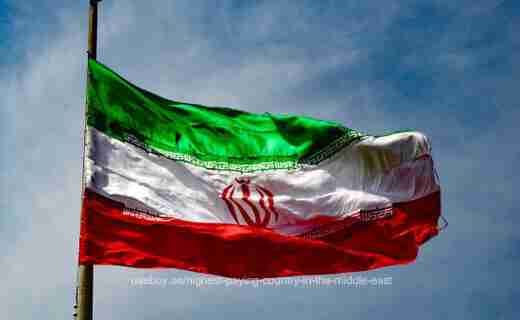This world includes 26 Arab countries including Qatar and United Arab Emirates. These 26 countries show significant income disparities. Saudi Arabia, the United Arab Emirates, and Qatar earn good income by selling their oil. Therefore, the salaries given in these countries are also good. In other countries such as Yemen and Sudan, salaries are quite low due to political instability and economic challenges. Today on this topic we will talk about the Highest Paying Countries in the Middle East.
Table of Content
ToggleList of Highest Paying Countries in the Middle East
Discover essential income data from Arab countries, including the United Arab Emirates, Egypt, Algeria, Sudan, Iraq, Morocco, Saudi Arabia, Yemen, Syria, Tunisia, Somalia, Chad, Comoros, Jordan, Eritrea, Libya, Lebanon, Palestine, Oman, Mauritania, Kuwait, Qatar, Bahrain, Tanzania, and Djibouti.
Our comprehensive list reveals minimum and maximum salaries, providing valuable insights into the economic landscape across these nations.
| Number | Arab Countries | Minimum Per Year | Maximum Per Year |
|---|---|---|---|
| #01 | United Arab Emirates | 50,540 AED | 258,000 AED |
| #02 | Egypt | 28,660 EGP | 493,000 EGP |
| #03 | Algeria | 543,200 DZD | 9,610,800 DZD |
| #04 | Sudan | 111,860 SDG | 1,955,300 SDG |
| #05 | Iraq | 6,216,700 IQD | 109,800,200 IQD |
| #06 | Morocco | 4,910 MAD | 86,700 MAD |
| #07 | Saudi Arabia | 52,460 SAR | 893,500 SAR |
| #08 | Yemen | 100,140 YER | 1,788,300 YER |
| #09 | Syria | 450,300 SYP | 7,957,900 SYP |
| #10 | Tunisia | 12,180 TND | 209,700 TND |
| #11 | Somalia | 788,000 SOS | 13,919,600 SOS |
| #12 | Chad | 1,476,700 XAF | 26,158,200 XAF |
| #13 | Comoros | 917,200 KMF | 16,198,300 KMF |
| #14 | Jordan | 4,320 JOD | 84,580 JOD |
| #15 | Eritrea | 19,060 ERN | 366,200 ERN |
| #16 | Libya | 10,020 LYD | 60,120 LYD |
| #17 | Lebanon | 6,922,100 LBP | 122,398,700 LBP |
| #18 | Palestine | 50,540 ILS | 258,000 ILS |
| #19 | Oman | 6,700 OMR | 93,600 OMR |
| #20 | Mauritania | 59,660 MRU | 1,065,400 MRU |
| #21 | Kuwait | 4,440 KWD | 66,180 KWD |
| #22 | Qatar | 46,040 QAR | 840,800 QAR |
| #23 | Bahrain | 4,840 BHD | 78,400 BHD |
| #24 | Tanzania | 3,829,500 TZS | 67,681,200 TZS |
| #25 | Djibouti | 836,800 DJF | 14,760,200 DJF |
| #26 | Iran | 135,600,300 IRR | 2,399,998,800 IRR |
Average Salary in the UAE

In the list of 26 Arab countries’ average salaries, the United Arab Emirates claims the top spot with an impressive range of 50,540 AED to 258,000 AED. This Gulf nation’s robust economy, driven by oil revenues and a thriving financial sector, significantly contributes to its high earning potential. Read more about the average Salary in the United Arab Emirates.
Average Salary in Egypt
Egypt secures the second spot in the ranking of 26 Arab countries with an average salary range spanning from 28,660 EGP to 493,000 EGP. This North African nation showcases a wide income spectrum, influenced by various industries, including tourism, agriculture, and a growing tech sector, reflecting its economic diversity. Read More about the average Salary in Egypt.

Average Salary in Algeria

Algeria claims the third position on the list of 26 Arab countries, featuring an average salary range of 543,200 DZD to 9,610,800 DZD. This North African nation’s income spectrum reflects its reliance on oil and gas revenues and a developing agricultural and manufacturing sector, contributing to the wide income disparity. Read More about the average Salary in Algeria.
Average Salary in Sudan
Sudan secures the fourth spot among the 26 Arab countries, showcasing an average salary range of 111,860 SDG to 1,955,300 SDG. The country’s income diversity stems from agriculture, natural resources, and services. However, economic challenges and political instability have contributed to the varying income levels in Sudan. Read more about the average Salary in Sudan.

Average Salary in Iraq

Iraq occupies the fifth position in the ranking of 26 Arab countries, with an average salary ranging from 6,216,700 IQD to 109,800,200 IQD. The income diversity in Iraq can be attributed to its significant oil reserves, although it’s important to note that the country’s economy has faced challenges due to political instability and conflict, influencing the income range. Read more about the average Salary in Iraq.
Average Salary in Morocco
Morocco is ranked sixth among the 26 Arab countries, featuring an average salary range of 4,910 MAD to 86,700 MAD. The income spectrum in Morocco reflects its diverse economy, with sectors like agriculture, tourism, and manufacturing contributing to the variations in earnings. This North African nation’s unique economic landscape influences its salary disparities. Read more about the average Salary in Morocco.

Average Salary in Saudi Arabia

Saudi Arabia is ranked seventh among 26 Arab countries, with an average salary ranging from 52,460 SAR to 893,500 SAR. This Middle Eastern powerhouse boasts a robust economy driven by oil wealth and diverse sectors, contributing to the wide range of income levels, making it a key player in the region’s economic landscape. Read More about the average Salary in Saudi Arabia.
Average Salary in Yemen
Yemen is the eighth-ranked country among the 26 Arab nations, with an average salary range spanning from 100,140 YER to 1,788,300 YER. However, this income spectrum is heavily affected by ongoing political instability and economic challenges, causing significant disparities in earnings across the country. Read more about the average Salary in Yemen.

Average Salary in Syria

Syria claims the ninth position in the list of 26 Arab countries, showcasing an average salary range of 450,300 SYP to 7,957,900 SYP. The wide income disparity in Syria is largely due to the ongoing civil conflict and economic hardships, which have a significant impact on the country’s income levels. Read more about the average Salary in Syria.
Average Salary in Tunisia
Tunisia ranks tenth among the 26 Arab countries, featuring an average salary range of 12,180 TND to 209,700 TND. The income spectrum in Tunisia reflects its diverse economy, with sectors like agriculture, tourism, and manufacturing contributing to the variations in earnings. This North African nation’s unique economic landscape influences its salary disparities. Read more about the average Salary in Tunisia.

Average Salary in Somalia

Somalia secures the eleventh position in the list of 26 Arab countries, displaying an average salary range of 788,000 SOS to 13,919,600 SOS. The wide income disparity in Somalia is influenced by factors such as political instability and economic challenges, which significantly impact the country’s income levels. Read more about the average Salary in Somalia.
Average Salary in Chad
Chad holds the twelfth position among the 26 Arab countries, with an average salary range from 1,476,700 XAF to 26,158,200 XAF. The income disparity in Chad is influenced by a variety of factors, including economic conditions and industry sectors, contributing to the wide range of earnings within the country. Read more about the average Salary in Chad.

Average Salary in Comoros

Comoros is ranked thirteenth among the 26 Arab countries, with an average salary range of 917,200 KMF to 16,198,300 KMF. This island nation’s income spectrum is influenced by sectors such as agriculture, fishing, and tourism, contributing to the variations in earnings. The unique economic landscape of Comoros plays a significant role in shaping its income disparities. Read more about the average Salary in Comoros.
Average Salary in Jordan
Jordan secures the fourteenth position among the 26 Arab countries, featuring an average salary range of 4,320 JOD to 84,580 JOD. The income spectrum in Jordan reflects its diverse economy, with sectors like tourism, manufacturing, and services contributing to the variations in earnings. This Middle Eastern nation’s unique economic landscape influences its salary disparities. Read more about the average Salary in Jordan

Average Salary in Eritrea

Eritrea ranks fifteenth among the 26 Arab countries, displaying an average salary range of 19,060 ERN to 366,200 ERN. The income disparity in Eritrea is influenced by various factors, including its economic conditions and industries, contributing to the wide range of earnings within the country. Read more about the average Salary in Eritrea.
Average Salary in Libya
Libya claims the sixteenth position in the list of 26 Arab countries, with an average salary range spanning from 10,020 LYD to 60,120 LYD. The income disparity in Libya can be attributed to economic challenges, political instability, and fluctuations in the oil industry, all of which impact the country’s income levels. Read more about the average Salary in Libya.

Average Salary in Lebanon

Lebanon is the seventeenth-ranked country among the 26 Arab nations, featuring an average salary range of 6,922,100 LBP to 122,398,700 LBP. The wide income disparity in Lebanon is influenced by various factors, including economic conditions and industry sectors, contributing to the significant variations in earnings across the country. Read more about the average Salary in Lebanon.
Average Salary in Palestine
Palestine holds the eighteenth position among the 26 Arab countries, with an average salary range spanning from 6,760 EGP to 92,240 EGP. The income disparity in Palestine is influenced by a variety of factors, including economic conditions and industry sectors, contributing to the wide range of earnings within the region. Read more about the average Salary in Palestine.

Average Salary in Oman

Oman secures the nineteenth position in the list of 26 Arab countries, showcasing an average salary range of 6,700 OMR to 93,600 OMR. The income spectrum in Oman reflects its diverse economy, with sectors like oil and gas, tourism, and logistics contributing to the variations in earnings. This Middle Eastern nation’s unique economic landscape influences its salary disparities. Read more about the average Salary in Oman.
Average Salary in Mauritania
Mauritania ranks twentieth among the 26 Arab countries, with an average salary range spanning from 59,660 MRU to 1,065,400 MRU. The income disparity in Mauritania is influenced by a variety of factors, including its economic conditions and industries, contributing to the wide range of earnings within the country. Read more about the average Salary in Mauritania.

Average Salary in Kuwait

Kuwait claims the twenty-first position in the list of 26 Arab countries, with an average salary range of 4,440 KWD to 66,180 KWD. The income spectrum in Kuwait reflects its strong oil-based economy and various sectors, contributing to the variations in earnings. This Gulf nation’s unique economic landscape plays a significant role in shaping its salary disparities. Read more about the average Salary in Kuwait.
Average Salary in Qatar
Qatar secures the twenty-second position among the 26 Arab countries, featuring an average salary range of 46,040 QAR to 840,800 QAR. This Gulf nation’s robust economy, driven by oil and gas revenues and a thriving financial sector, significantly contributes to its high earning potential and the wide range of income levels within the country. Read more about the average Salary in Qatar.

Average Salary in Bahrain

Bahrain holds the twenty-third position in the list of 26 Arab countries, with an average salary range spanning from 4,840 BHD to 78,400 BHD. The income spectrum in Bahrain reflects its diverse economy, including sectors like finance, tourism, and manufacturing, which contribute to the variations in earnings. This Middle Eastern nation’s unique economic landscape plays a crucial role in shaping its salary disparities. Read more about the average Salary in Bahrain.
Average Salary in Tanzania
Tanzania is ranked twenty-fourth among the 26 Arab countries, showcasing an average salary range of 3,829,500 TZS to 67,681,200 TZS. The income diversity in Tanzania is influenced by various factors, including economic conditions and various industries, contributing to the wide variations in earnings within the country. Read more about the average Salary in Tanzania.

Average Salary in Djibouti

Djibouti claims the twenty-fifth position in the list of 26 Arab countries, with an average salary range of 836,800 DJF to 14,760,200 DJF. The income disparity in Djibouti is influenced by factors such as its economic conditions and industry sectors, contributing to the significant variations in earnings within the country. Read more about the average Salary in Djibouti.
Average Salary in Iran
The average hourly wage in Iran stands at 833,332 IRR, offering a competitive earning potential. Meanwhile, the minimum hourly wage is set at 47,083 IRR, ensuring a baseline income for those entering the job market or holding lower-paying positions. These figures outline the spectrum of hourly earnings in Iran. Read more about the average Salary in Iran.

Conclusion
The diverse income levels across 26 Arab countries reflect the complex interplay of economic, political, and societal factors. This data sheds light on the unique challenges and opportunities within the Middle East and North Africa, underlining the importance of economic analysis and policy development.







